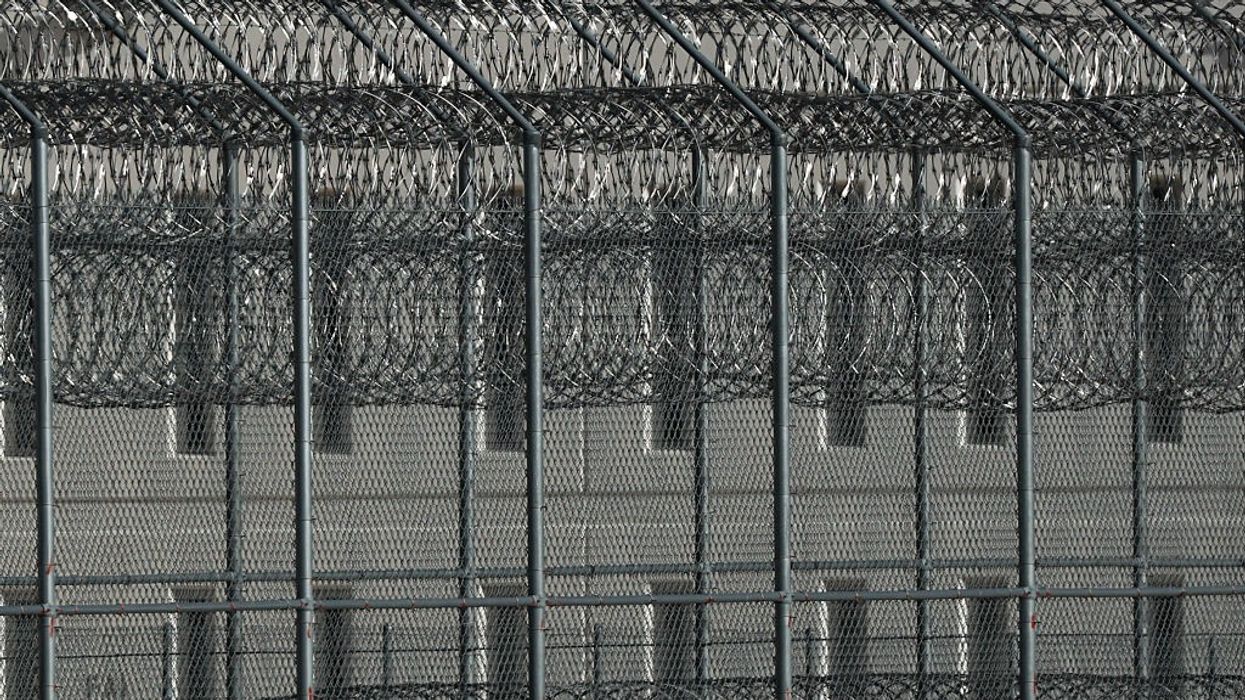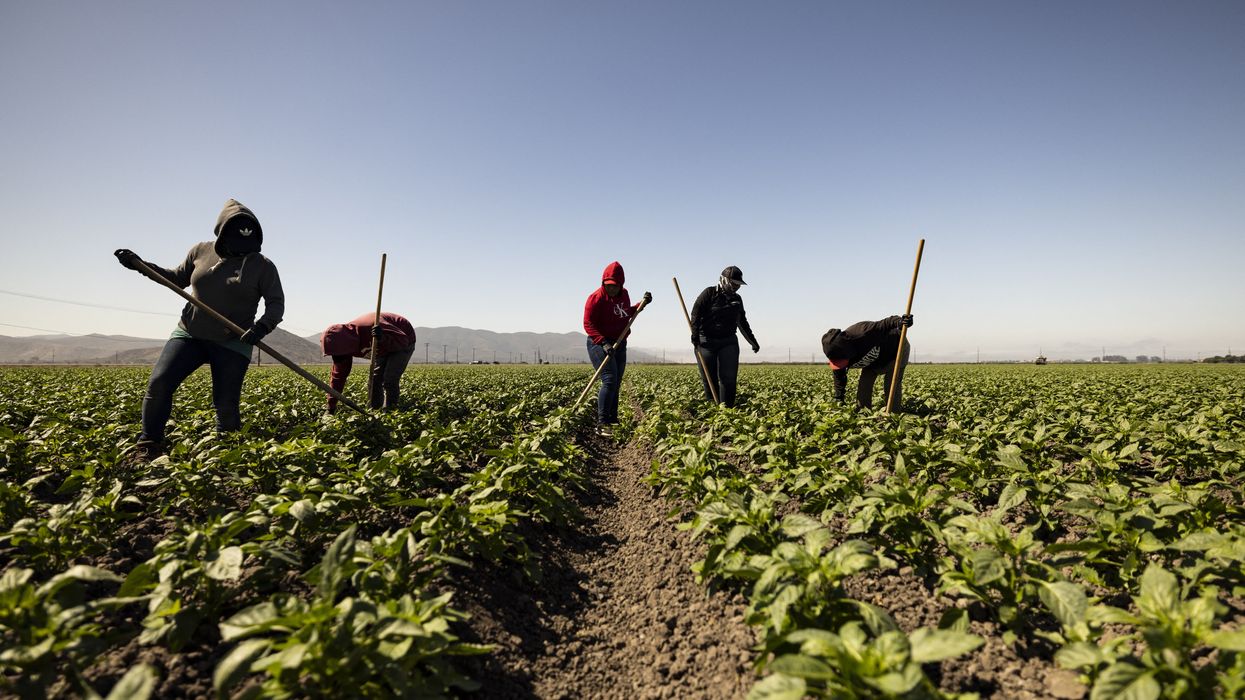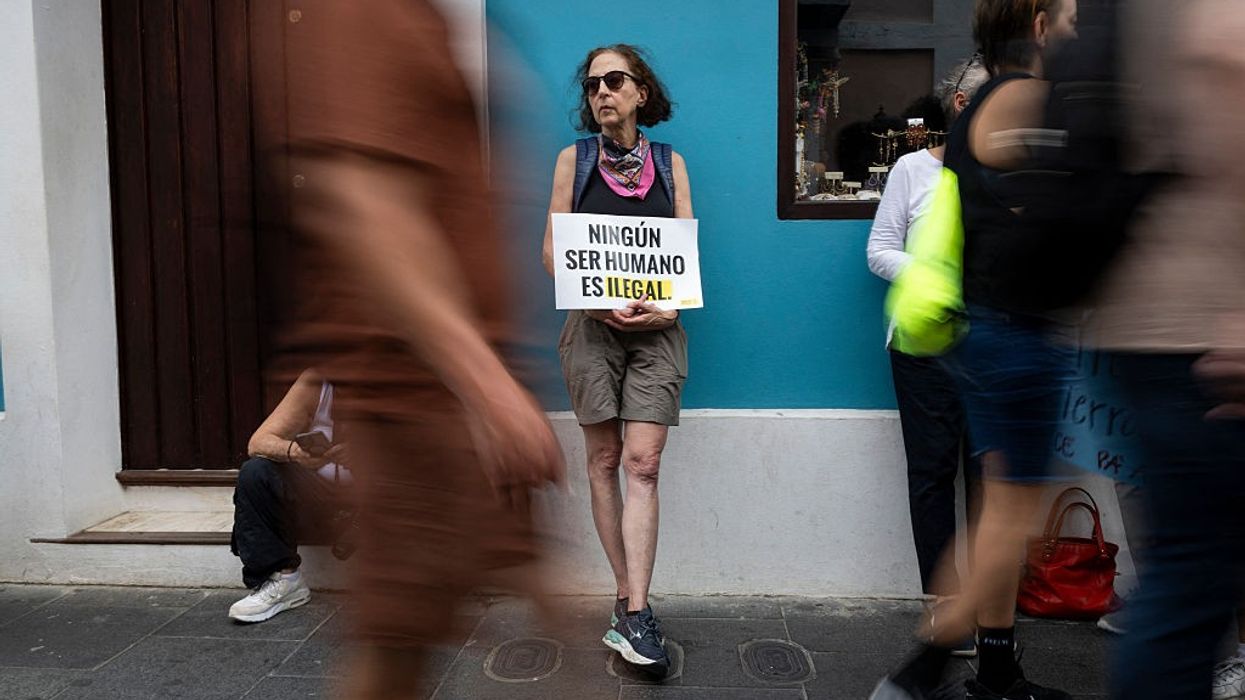ICE Detention Is Even Deadlier Under Trump 2.0
At least 25 people have died in ICE custody since President Donald Trump returned to office, making 2025 the deadliest year for people in ICE custody since 2004.
Gabriel Garcia-Aviles was a 56-year-old grandfather with a work permit who’d been living in the US for over 30 years. He was a beloved member of his Southern California community.
This fall, Immigration and Customs Enforcement (ICE) agents detained Garcia-Aviles and sent him to the Adelanto immigration detention center. He died around a week later, with ICE only informing his family that he was in critical condition once he was on his deathbed.
At the hospital, his daughter Mariel found him “unconscious, intubated,” and with “dried blood on his forehead.” He had “a cut on his tongue and blood on his lips” and “broken teeth and bruising on his body,” according to reporting from LA Taco. No clear cause of death was given, leaving his family shattered and still searching for answers.
That’s the second death this year at Adelanto.
Ultimately Congress must defund and dismantle ICE, end the unnecessary and inhumane system of immigration detention, and create more legal pathways to citizenship, among other reforms.
Ismael Ayala-Uribe, a 39-year-old former DACA recipient from Orange County, lived in the US for nearly 35 years. ICE apprehended him while he was working at a car wash and sent him to Adelanto on August 22. He died a month later of an abscess after reportedly being denied lifesaving medical treatment.
ICE didn’t inform his family that he’d been hospitalized. They only learned of Ayala-Uribe’s death the following day after a police visit.
At least 25 people have died in ICE custody since President Donald Trump returned to office, making 2025 the deadliest year for people in ICE custody since 2004. Over 65,000 others remain detained, also the highest number in years. Immigrants with no criminal record remain the largest group in immigration detention. According to ProPublica, ICE has also detained over 170 US citizens this year.
Adelanto, owned and operated by the GEO Group, is among ICE’s sprawling network of mostly private, for-profit detention facilities notorious for human rights abuses. But it’s hardly alone.
From the Krome Detention Center in Florida to the Karnes County detention facility in Texas, people in ICE custody are routinely subjected to abysmal conditions and medical neglect. The detention population has increased by 50% this year, which experts have warned could lead to more deaths.
Rights groups have been issuing warnings like these for years.
In 2024, the American Civil Liberties Union and Physicians for Human Rights examined the deaths of 52 people who died in ICE custody between 2017 to 2021 and concluded that 95% of those deaths would have been “preventable or possibly preventable” with appropriate medical care. The researchers also found ICE’s oversight and accountability mechanisms “critically flawed.”
These problems have only worsened as immigration arrests have escalated as part of the Trump administration’s anti-immigrant agenda. Recent US Senate investigations uncovered dozens of cases of medical neglect, insufficient or rotten food, foul water, and pregnant women forced to sleep on the floor in ICE detention facilities this year.
Watchdog groups and lawmakers have found that ICE has repeatedly failed to comply with its own protocols, ignored congressional inquiries, and denied members of Congress entry to facilities, even though they have the authority to conduct unannounced oversight visits.
ICE acts increasingly like a rogue agency, refusing to follow US and international law. Yet the “Big Beautiful Bill” Trump signed this year includes $45 billion for ICE to build new prisons housing adults and children, which all but ensures more abuses and preventable deaths. Meanwhile, private prison companies continue to profit.
It doesn’t have to be this way. More oversight would help safeguard civil and human rights. But ultimately Congress must defund and dismantle ICE, end the unnecessary and inhumane system of immigration detention, and create more legal pathways to citizenship, among other reforms.
Legislation recently introduced by US Reps. Pramila Jayapal (D-Wash.) and Adam Smith (D-Wash.) would be a step forward. If passed, it would repeal mandatory detention and phase out privatized detention.
As more families are ripped apart, our nation of immigrants stands at a crossroads. It can continue on this path of extreme cruelty and systemic abuse, or it can uphold human rights and dignity for all people.


